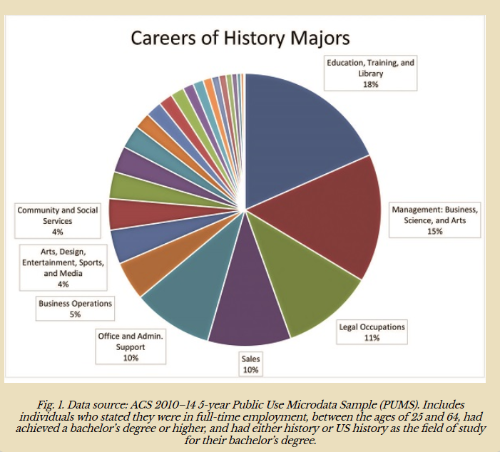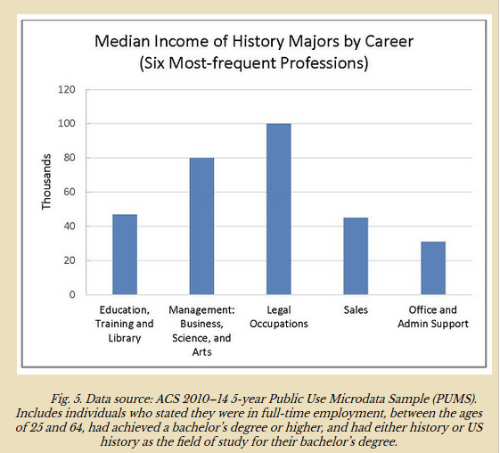The History Major
So You Think You Want to be a History Major...
“Nothing capable of being memorized is history.”
--R.G. Collingwood
Program Requirements
Courses
Few degrees are as versatile as a bachelor’s degree in history. Students who graduate with a degree in history learn not just facts and dates, but a set of skills that offer opportunity in a variety of careers. Emphasizing historical reasoning, critical thinking, research, persuasive argumentation, and writing, the history major at Montana State University Billings will help you hone a skill set that will set you up for a lifetime of opportunity.
Start here by taking our quiz to find out whether history is the right major for you!
Combating the Myth of the “Useless” History Major
Perhaps it will be a concerned parent, a well-intentioned friend, or that uncle who is always cracking jokes... Chances are very good that, somewhere along the way, you will face the comment that a degree in history is mere training for becoming a barista at Starbucks. Warnings from career counselors, family members, and other well-meaning entities convince many prospective college students that to earn a good job, you must major in a STEM field. Data indicates that students, advised to major in something more “practical” or “sensible,” have fled from the History BA in the past twenty years.
Yet, data provides solid evidence that a degree in history does not, in fact, doom you to a life of unemployment or underemployment. The American Community Survey (ACS), conducted by the US Census Bureau, illustrates the wide utility of a history degree and suggests that students who major in history lead highly successful lives, even if they do not become professional historians.
But what can I actually do with a degree in history?
A degree in history can prepare you for a variety of careers. According to the ACS, one in five history majors will enter education as a primary-, middle-, or high-school teacher. Approximately 15 percent find management positions in business. 11 percent enter careers in the legal field. Nearly half of history majors identified in this study went on to graduate school in one form or another. Contrary to what your funny uncle might suggest, it is not likely that you will end up slinging Frappuccinos: only 1.7 percent of former history majors work in food service.
History majors go on to peruse careers in...
Education
-Elementary and Secondary Teacher

-College or University Professor
-Historical Sites/Museums
Communication
-Writer
-Journalist
-Editor
Information Management
-Archivist
-Librarian
-Records/Information Manager
Legal
-Lawyer
-Paralegal
-Legislative Staff
Business/Association
-In-house Historian for Corporation
-Contract Historian
-Historian for Non-profit Organization
Historic Preservation
-Preservationist for Architectural Firm
-Preservationist for City Planning or Economic Development Agency
-Preservationist for the Federal Government (National Park Service, U.S. Army, or U.S. Forest Service, for example
But will I actually earn money doing any of these things??
Good news! You can indeed earn a very respectable living even if you have decided to major in history as an undergraduate! Certainly there is a trend, noted by an American Academy of Arts and Sciences Humanities Indicators project analyzing the ACS data, that humanities students earn less in terms of median income than those with degrees in STEM fields. But, history fares well in regards to compensation compared to other humanities majors. For employed history majors between the ages of 25 and 64, the median income is currently $60,000 per year. (Note, however, that those entering education or community/social services average lower yearly income—$45,000-47,000 per year—than those entering the legal profession where the annual median income is $100,000.) Clearly, a degree in history can afford you the opportunity to earn bank by entering the legal or managerial fields if you so desire; certainly it also offers the chance to earn a decent living doing something that can be vastly rewarding in many different ways.

*Figures from Paul B. Sturtevant, “History is not a Useless Major,” Perspectives on History, April 2017
For more detailed information and resources about jobs for students in history, visit
the American Historical Association’s “Careers for Students of History” page. Also visit our alumni webpage to read more about what former MSU-Billings history
majors go on to do after graduation.

